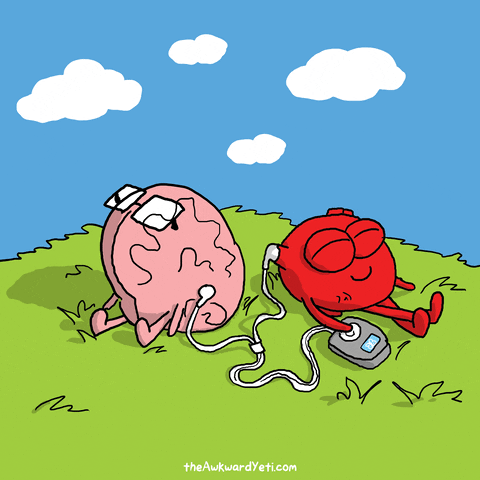We use cookies on our website for a number of purposes, including analytics, performance, and advertising. Learn more.
OK!
Boo
SIGN IN
European ISFP Movie Characters
European ISFP They Call Me Trinity (1970 Film) Characters
SHARE
The complete list of European ISFP They Call Me Trinity (1970 Film) characters.
Debate the personality types of your favorite fictional characters and celebrities.
SIGN UP
40,000,000+ DOWNLOADS
Debate the personality types of your favorite fictional characters and celebrities.
40,000,000+ DOWNLOADS
SIGN UP
Discover the depths of ISFP They Call Me Trinity (1970 Film) characters from Europe right here at Boo, where we connect the dots between fiction and personal insight. Here, every story's hero, villain, or side character becomes a key to unlocking the deeper aspects of personality and human connection. As you journey through the diverse personalities featured in our collection, you'll discover how these characters resonate with your own experiences and feelings. This exploration is not just about understanding these figures; it’s about seeing parts of ourselves reflected in their stories.
Europe, a continent rich in history and cultural diversity, is a mosaic of traditions, languages, and societal norms that have evolved over centuries. The unique cultural characteristics of Europe are deeply rooted in its historical context, from the philosophical legacies of Ancient Greece and Rome to the transformative periods of the Renaissance and Enlightenment. These epochs have instilled a profound appreciation for art, science, and intellectual discourse among Europeans. Societal norms in Europe often emphasize individualism balanced with a strong sense of community and social responsibility. Values such as democracy, human rights, and social welfare are deeply ingrained, shaping the personality traits of its inhabitants to be open-minded, progressive, and empathetic. The historical context of wars, revolutions, and unifications has also fostered resilience and adaptability, making Europeans adept at navigating change while preserving their rich cultural heritage. This intricate interplay of history, values, and societal norms profoundly influences both individual and collective behaviors, creating a unique European identity that is both diverse and cohesive.
Europeans are often characterized by their cosmopolitan outlook, valuing education, cultural exchange, and innovation. Typical personality traits include a strong sense of independence, critical thinking, and a penchant for debate and discussion. Social customs vary widely across the continent, but there is a common thread of valuing personal freedom and expression. Europeans tend to prioritize work-life balance, with a deep appreciation for leisure, family, and social connections. The cultural identity of Europeans is marked by a blend of tradition and modernity, where historical customs coexist with contemporary lifestyles. This duality is reflected in their psychological makeup, where a respect for heritage and a forward-thinking mindset coexist harmoniously. Europeans are known for their hospitality, politeness, and a certain reserved demeanor that gradually reveals warmth and openness. These distinct qualities set Europeans apart, creating a unique cultural identity that is both rich in history and dynamic in its evolution.
In addition to the rich tapestry of cultural backgrounds, the ISFP personality type, often referred to as the Artist, brings a unique blend of creativity, sensitivity, and a deep appreciation for beauty to any environment. Known for their artistic flair and a strong sense of aesthetics, ISFPs excel in roles that allow them to express their individuality and connect with others on an emotional level. Their strengths lie in their ability to create and appreciate art, their empathetic nature, and their knack for living in the moment. However, their focus on personal values and emotions can sometimes lead to challenges, such as difficulty with criticism and a tendency to avoid conflict, which may be perceived as a lack of assertiveness or decisiveness by others. In adversity, ISFPs cope by retreating into their inner world and drawing strength from their creative outlets, often using their artistic talents to process and express their feelings. They are perceived as gentle, compassionate, and introspective, bringing a sense of calm and beauty to any group. Their distinctive qualities include an exceptional ability to create meaningful and aesthetically pleasing experiences, a talent for understanding and empathizing with others, and a genuine appreciation for the subtleties of life, making them invaluable in roles that require a personal touch and a deep emotional connection.
As you explore the profiles of ISFP They Call Me Trinity (1970 Film) fictional characters from Europe, consider deepening your journey from here. Join our discussions, share your interpretations of what you find, and connect with fellow enthusiasts in the Boo community. Each character's story is a springboard for deeper reflection and understanding.
#isfp Universe
Make friends, date, or chat with ISFPs in the ISFP Universe.
Debate the personality types of your favorite fictional characters and celebrities.
40,000,000+ DOWNLOADS
Debate the personality types of your favorite fictional characters and celebrities.
40,000,000+ DOWNLOADS
JOIN NOW
JOIN NOW















































